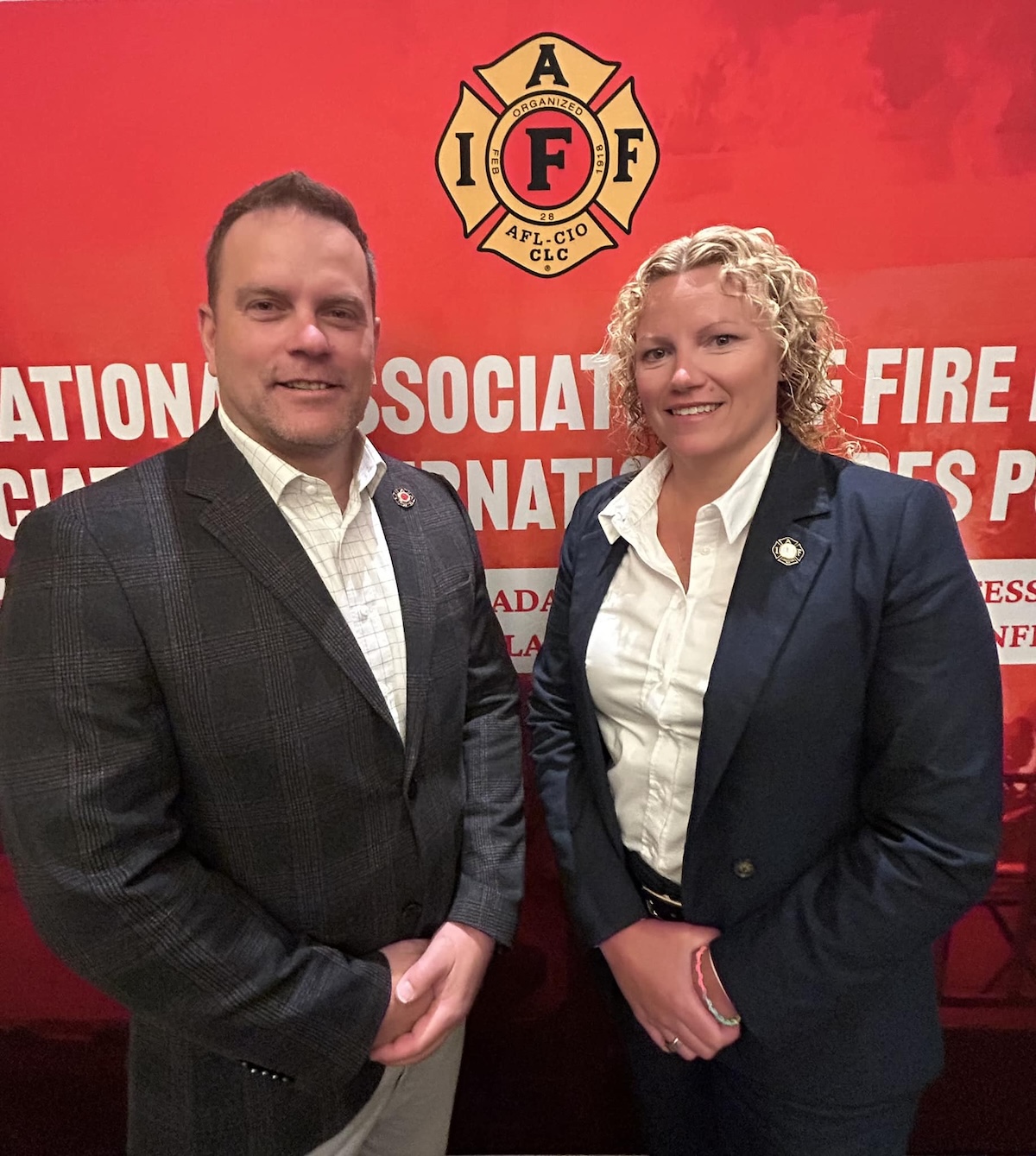The Pregnant Workers Fairness Act (PWFA) – a new federal law requiring employers to provide ‘reasonable accommodations’ to pregnant or postpartum employees so that they can continue to work safely on the job – is set to take effect June 27.
“This new law should really help IAFF members who work in fire departments that don’t have a policy in place or who have employers who are hesitant to make any adjustments for pregnant or postpartum fire fighters,” said Newport, KY Local 45 Secretary Audrey Owczarzak, a member of the IAFF Elected Human Relations Committee. “It is important to keep in mind, however, that fire fighters must take the initiative to make the request. Employers will not suggest accommodations.”
Tamara Imam, an attorney with Mooney, Green, Saindon, Murphy & Welch, P.C. which is retained by the IAFF to assist with the needs of the membership, said IAFF members should feel comfortable making accommodation requests as this new law explicitly prohibits employers from penalizing employees for doing so.
“As it is modeled after the American Disabilities Act (ADA), the PWFA says employers cannot engage in any retaliation, coercion, intimidation, threats, or interference against an employee who if they request or receive a reasonable accommodation,” said Imam. “Employers also cannot deny these employees employment opportunities or require them to take leave if a reasonable accommodation can be made to allow work to continue.”
Some examples of reasonable accommodations include the ability to sit or drink water; work flexible hours; receiving appropriately sized uniforms and safety apparel; receiving additional break time to use the bathroom, eat, and rest, and be excused from strenuous activities and/or activities that involve exposure to compounds not safe for pregnancy.
Requests for a temporary accommodation related to pregnancy or postpartum conditions cannot be denied unless the employer can prove fulfilling the request would cause an undue hardship on business operations.
In fact, employers must have a discussion in good faith with the employee about whether the requested accommodation can be made. However, the employee should expect the employer to ask for documentation from the employee’s healthcare provider to assist with this process.
IAFF Elected Human Relations Committee members are hoping to discuss what this means for fire fighters and rescue workers as part of roundtable discussions and training modules at events such as the Affiliate Leadership Training Summitt.
“There is a lot to consider when you ask for accommodations from what the impact of on-the-job exposures would potentially have on an unborn child to whether you can financially afford the shorter hours that come with light duty,” said Shreveport, LA Local 514 President Barbara Sellers, who sits on the IAFF Elected Human Relations Committee. “These are topics that we should all consider and discuss options. Meanwhile, this new law will help ensure that fire fighter employers will take more responsibility when it comes to our welfare.”
Violations of the PWFA can be reported to the U.S. Equal Employment Opportunity Commission any time after June 27.



